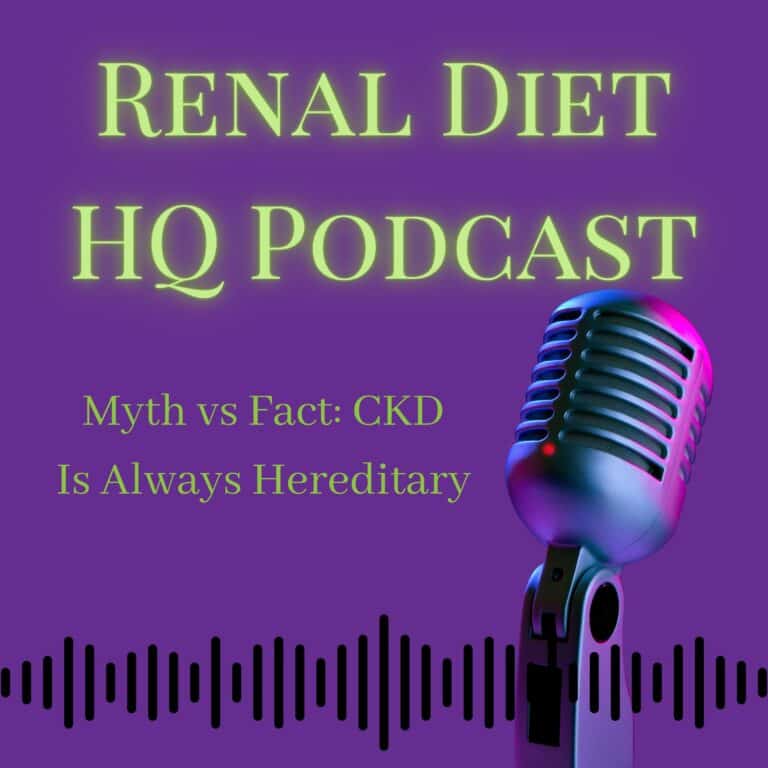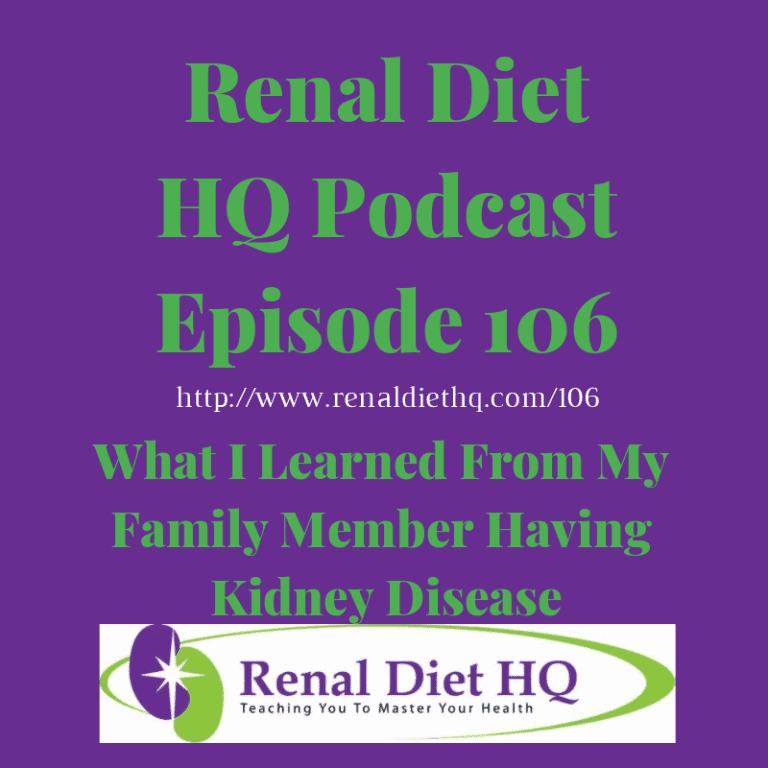Can I Eat Peanut Butter on a Renal Diet? | Everything You Need to Know - Podcast
Podcast: Play in new window | Download

If you're on a renal diet and wondering about incorporating peanut butter into your meals, the good news is that it's possible with some considerations. While high amounts of protein or sodium can be detrimental to kidney health, moderation and nutritional awareness allow you to enjoy peanut butter without exacerbating kidney issues. This guide will help you include peanut butter in a kidney-friendly diet by focusing on moderation and selecting the right products. By the end of this post, you should feel informed and confident about incorporating peanut butter into your renal diet in a way that benefits your health.
For More Recipes and Ideas --->> Get Your Free Meals and Recipes That Are Perfect for Pre-Dialysis Diets, Pre-Dialysis with Diabetes, or Dialysis Diets.
Understanding Peanut Butter and Kidney Health
- Nutritional Profile of Peanut Butter:
Peanut butter is a nutritious and popular snack offering healthy fats, proteins, and essential vitamins and minerals. It's important to note that peanuts and peanut butter have similar nutrition profiles but differ in protein, fat, carbohydrate, sodium, potassium, and phosphorus levels. For example, peanuts have slightly fewer calories and less protein per tablespoon compared to peanut butter but are lower in sodium with comparable amounts of fat, carbohydrate, potassium, and phosphorus. - Key Nutrients of Concern:
When considering peanut butter for a renal diet, the potassium and phosphorus content is particularly important. Peanuts contain 92 milligrams of potassium and 41 milligrams of phosphorus per tablespoon, whereas peanut butter contains 75 milligrams of potassium and a much higher 250 milligrams of phosphorus per tablespoon. This difference underscores the importance of monitoring phosphorus intake for those on a renal diet, especially in later stages. Too much potassium can lead to complications like hypertension and kidney failure, while excess phosphorus can cause calcium deficiency or interfere with kidney function.
Choosing the Right Peanut Butter
- Natural vs. Commercial Peanut Butter:
Natural or homemade peanut butter typically has lower phosphorus levels compared to commercial brands, which may contain added sugar, salt, hydrogenated oils, and preservatives that increase phosphorus content. Commercial peanut butter might also be fortified with vitamins and minerals, including phosphates like sodium phosphate, monosodium or disodium phosphate, calcium phosphate, potassium phosphate, and tricalcium phosphate, further elevating its phosphorus levels. - Reading Labels:
When choosing peanut butter, it's crucial to read nutrition labels carefully. Look for phosphates listed among the ingredients and opt for products with lower phosphate content. Selecting natural, organic nut butters with fewer additives generally means lower levels of minerals, including potassium and phosphorus.
Moderation and Portion Control
- Recommended Servings:
Peanut butter can be a suitable snack for individuals on a renal diet when consumed in moderation, typically limited to about two tablespoons per day. This is because peanut butter is rich in protein and fat while being low in carbohydrates, making it a good option for those managing kidney disease. - Monitoring Nutrient Intake:
It's crucial for individuals with kidney issues to monitor their intake closely. Measuring portions helps manage nutrient intake, particularly for those focusing on low-carbohydrate and low-potassium foods. Consider natural types of peanut butter without added salt and other nut butters like almond and cashew, which have less potassium than walnut or pistachio butter.
Alternatives to Peanut Butter
- Other Nut Butters:
Almond butter and sunflower seed butter are excellent alternatives, especially for those with chronic kidney disease or seeking to avoid allergens. These spreads are rich in heart-healthy fats and plant-based proteins but have a lower phosphorus content, which is crucial for individuals with CKD. - Benefits of Alternatives:
Almond butter is notable for its higher content of antioxidants, including vitamin E and flavonoids, while sunflower seed butter stands out for its mineral richness, providing essential nutrients like calcium and potassium. Nutritionally, both are relatively low in calories yet rich in nutrients, making them suitable for a nutrient-rich diet while managing dietary restrictions.
Practical Tips for Incorporating Peanut Butter in a Renal Diet
- Meal Planning and Recipes:
Incorporate peanut butter into snacks and meals in a renal-friendly way by choosing low sodium and sugar-free recipes. Pair peanut butter with low-potassium foods and avoid high-sodium and high-sugar pairings, such as certain breads and jams. - Combining with Other Foods:
Opt for roasted unsalted peanuts as a kidney-friendly choice. Measure out servings and store leftovers away from immediate reach to stay within nutritional recommendations and support kidney function effectively.
Considerations for Diabetics with CKD
- Impact on Blood Sugar Levels:
Peanut butter can be a good source of protein and healthy fats, helping maintain stable blood glucose levels for those with diabetes or at risk of developing the condition. However, diabetics should watch portion sizes and avoid sugary jams and jellies that may spike blood glucose levels rapidly. - Benefits for Diabetics:
The protein and fiber in peanut butter can help keep blood sugar levels stable throughout the day. It's best to talk to a doctor or dietitian before adding new foods to ensure you're getting all the nutrients you need without overdoing it on certain minerals like potassium and phosphorus.
Health Benefits of Peanut Butter in a Renal Diet
- Cardiovascular Health:
Peanuts contain monounsaturated fats and omega-3 fatty acids, which are beneficial for lowering cholesterol and promoting heart health. - Overall Nutritional Benefits:
Peanut butter provides energy and essential nutrients, making it a good snack choice when consumed in moderation. It can be part of a balanced approach to managing CKD, as long as overall calorie intake is monitored to avoid excess.
Incorporating peanut butter into a renal diet requires careful consideration, particularly regarding potassium and phosphorus content. By choosing the right products, monitoring portion sizes, and considering alternatives like almond or sunflower seed butter, individuals can enjoy the benefits of peanut butter without compromising their kidney health. Always consult with healthcare professionals before making dietary changes to ensure they align with your specific needs.
Visit Renal Diet HQ for more information and resources. Remember, a healthy diet doesn't have to mean foregoing taste as long as careful consideration is given to ingredient selection and consumption levels. Embrace a balanced approach to nutrition and enjoy life's simple pleasures responsibly.
Learn more about What I Wish I Knew Sooner About CKD: Research and Advocacy-Podcast
Learn more about What I Wish I Knew Earlier: The Importance of Early Detection-Podcast








